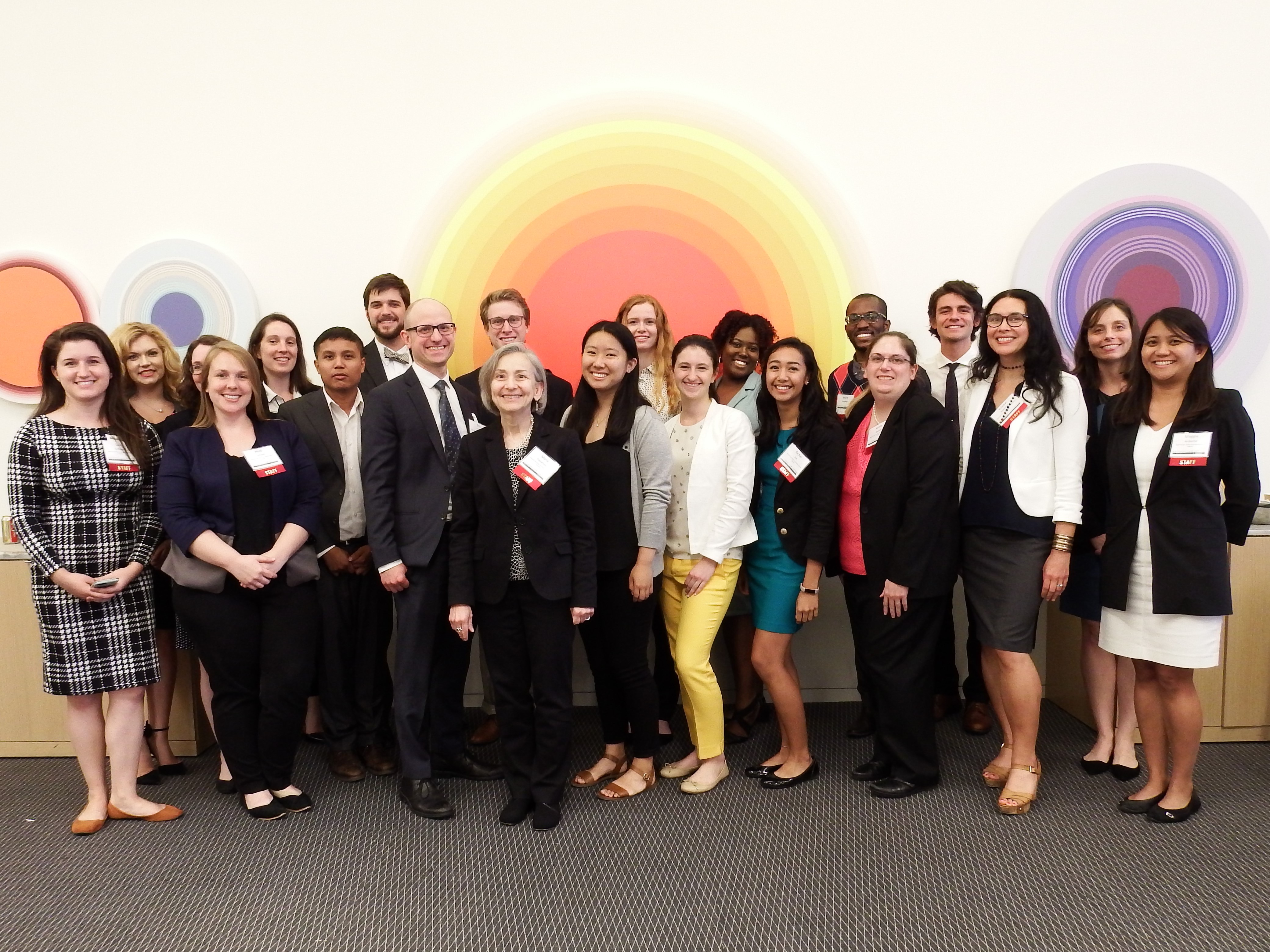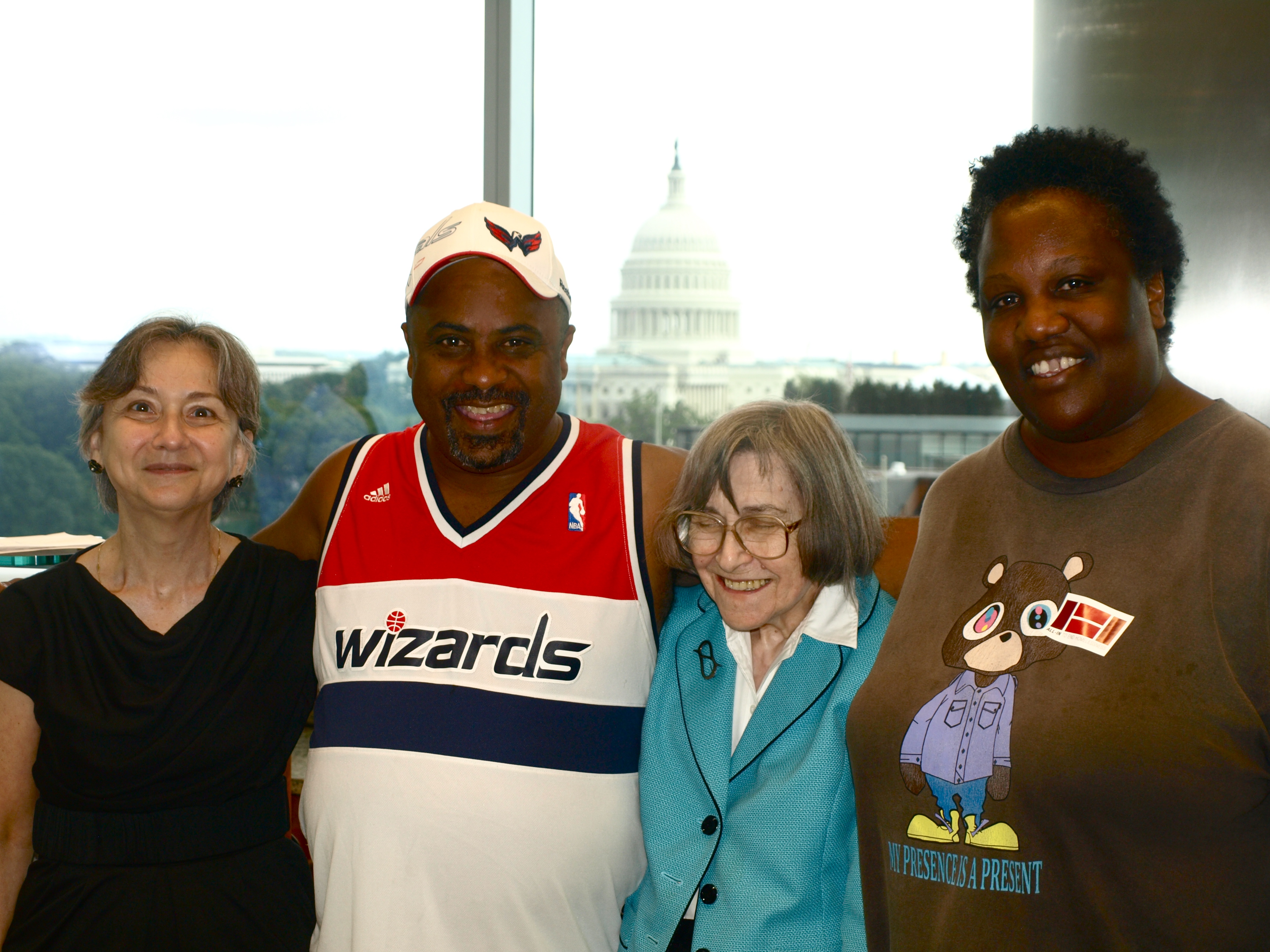 The National Law Center on Homelessness & Poverty, a 501(c)3 based in Washington, D.C., is the only national legal group dedicated to ending and preventing homelessness. We operate programs across the United States that serve America’s more than 3.5 million homeless families, children and individuals. We believe that the right to a home and food and the rights of children to go to school lie at the heart of human dignity and we envision a world where no one has to go without the basics of human survival.
The National Law Center on Homelessness & Poverty, a 501(c)3 based in Washington, D.C., is the only national legal group dedicated to ending and preventing homelessness. We operate programs across the United States that serve America’s more than 3.5 million homeless families, children and individuals. We believe that the right to a home and food and the rights of children to go to school lie at the heart of human dignity and we envision a world where no one has to go without the basics of human survival.In the mid-1980s, our founder, Maria Foscarinis, was a lawyer working at a large corporate firm when she volunteered to represent homeless families on a pro bono basis. After seeing the impact of first-rate legal advocacy on the lives of homeless people, Maria left the firm to dedicate herself to that work full-time. She went on to become an architect of the 1987 McKinney-Vento Homeless Assistance Act, the first major federal legislation to address homelessness. In 1989, she established the Law Center with one goal in mind: ending homelessness in America.
Since 1989, we have used the power of the law to advocate for millions of men, women, children and families whose voices are seldom heard. We have put homeless children back in school, won new resources for affordable housing, prevented homelessness for renters, overturned laws that criminalize homelessness, and built support for the human right to housing here at home. For the Law Center, advocacy can range from intervening locally to ensure children can stay in the only school they have known to spearheading significant litigation for many years to offer unused federal properties to the homeless. We persevere until we conclude that the issue has been addressed and that the impact is felt by the individuals who need it.
Today, the Law Center’s staff is comprised primarily of attorneys, which is unique in the national homeless advocacy space and gives us a complete understanding of how laws are passed, what they mean, and what their impact will be on individual people. Law Center attorneys are experts on homelessness and poverty issues and include specialists in housing, civil rights, human rights, youth and education, and domestic violence.
Through policy advocacy, public education, and impact litigation, the Law Center’s national programs address the root causes of homelessness and meet the immediate and long-term needs of those who are homeless or at risk of becoming homeless. Through training and technical support, the Law Center also enhances the capacity of local and national groups to become more effective voices for the needs and rights of homeless people.
In carrying out this critically important work, we believe that no one should have to go without the basics in a country as wealthy as ours. And while we’ve made much progress, there is still much to do as the foreclosure crisis and high unemployment continue to push record numbers of men, women and children into homelessness.
We will continue to use legal innovations in our groundbreaking cases and policy advocacy to transform fundamentally the landscape of homelessness and poverty is this country. And, as we work with communities across the country, we stay connected with the realities on the ground—and opportunities for change. In 2012, for example, we worked with advocates in Rhode Island on the nation’s first ever enforceable state Homeless Bill of Rights, helping to shape that legislation to protect against the criminalization of homelessness and other discrimination based on housing status and to call for recognition of the human right to housing. Now, thanks to advocacy by our state and local level allies, more states have adopted such laws and we are providing vital legal support to this growing movement.
 As we carry out this work, we are committed to solutions that end and prevent homelessness-- addressing its causes, not just its symptoms. For example, we know that domestic violence is a leading cause of homelessness for women and, often, their children. In March 2013, after three years of advocacy, we won a major victory that protects survivors of domestic violence when Congress reauthorized the Violence Against Women Act, extending housing protections for victims of domestic violence to some 4 million additional housing units nationally.
As we carry out this work, we are committed to solutions that end and prevent homelessness-- addressing its causes, not just its symptoms. For example, we know that domestic violence is a leading cause of homelessness for women and, often, their children. In March 2013, after three years of advocacy, we won a major victory that protects survivors of domestic violence when Congress reauthorized the Violence Against Women Act, extending housing protections for victims of domestic violence to some 4 million additional housing units nationally.In Dallas, Texas, many of the city’s more than 7,000 homeless residents struggle with hunger every day. Thanks to our work, unfair city laws and policies that prevented private, charitable organizations from providing food to them have been invalidated. Now, these groups can offer badly needed food, solace and social services to these desperately poor Americans, and an opportunity to get the help they need.

.jpg)

